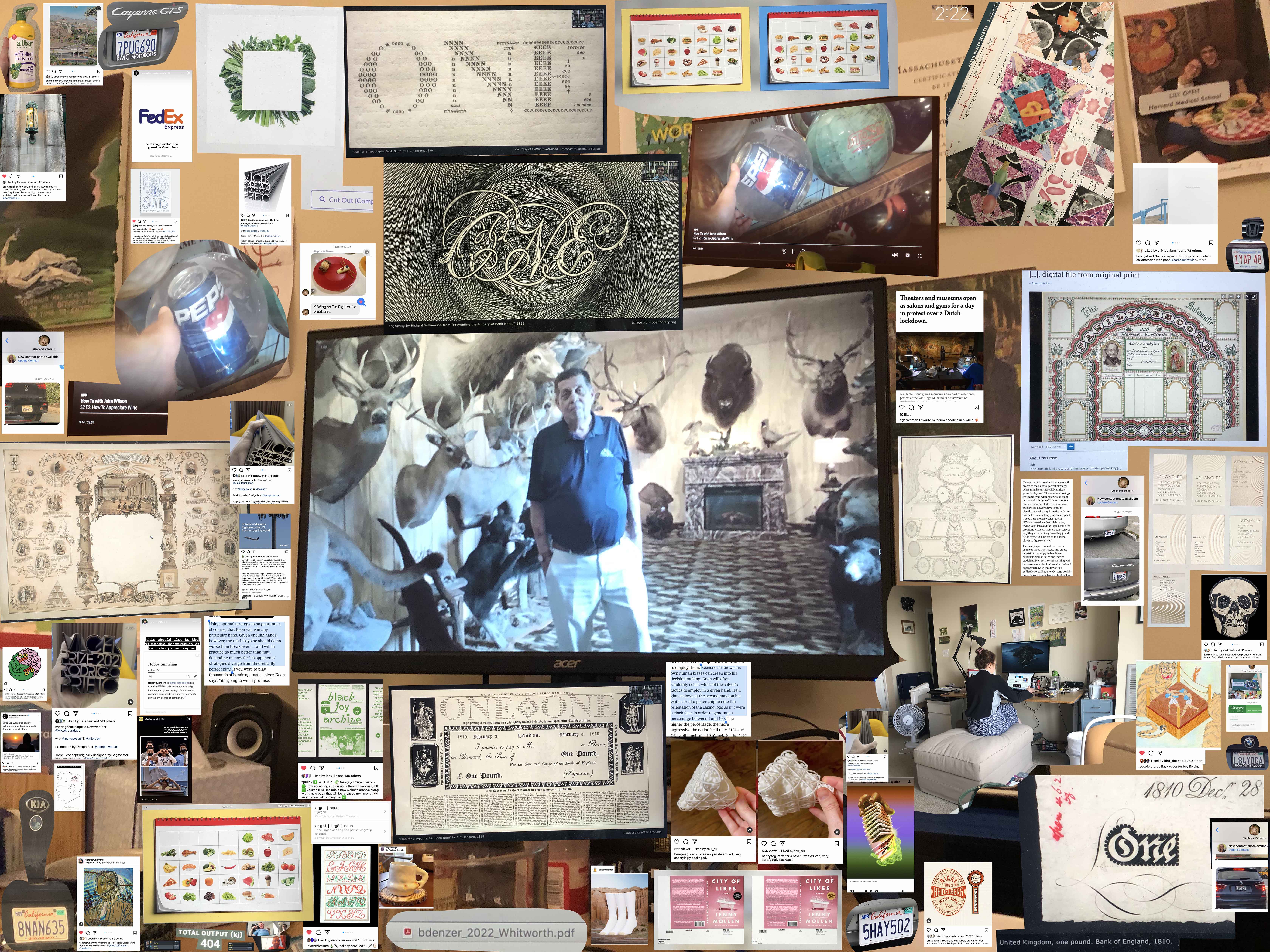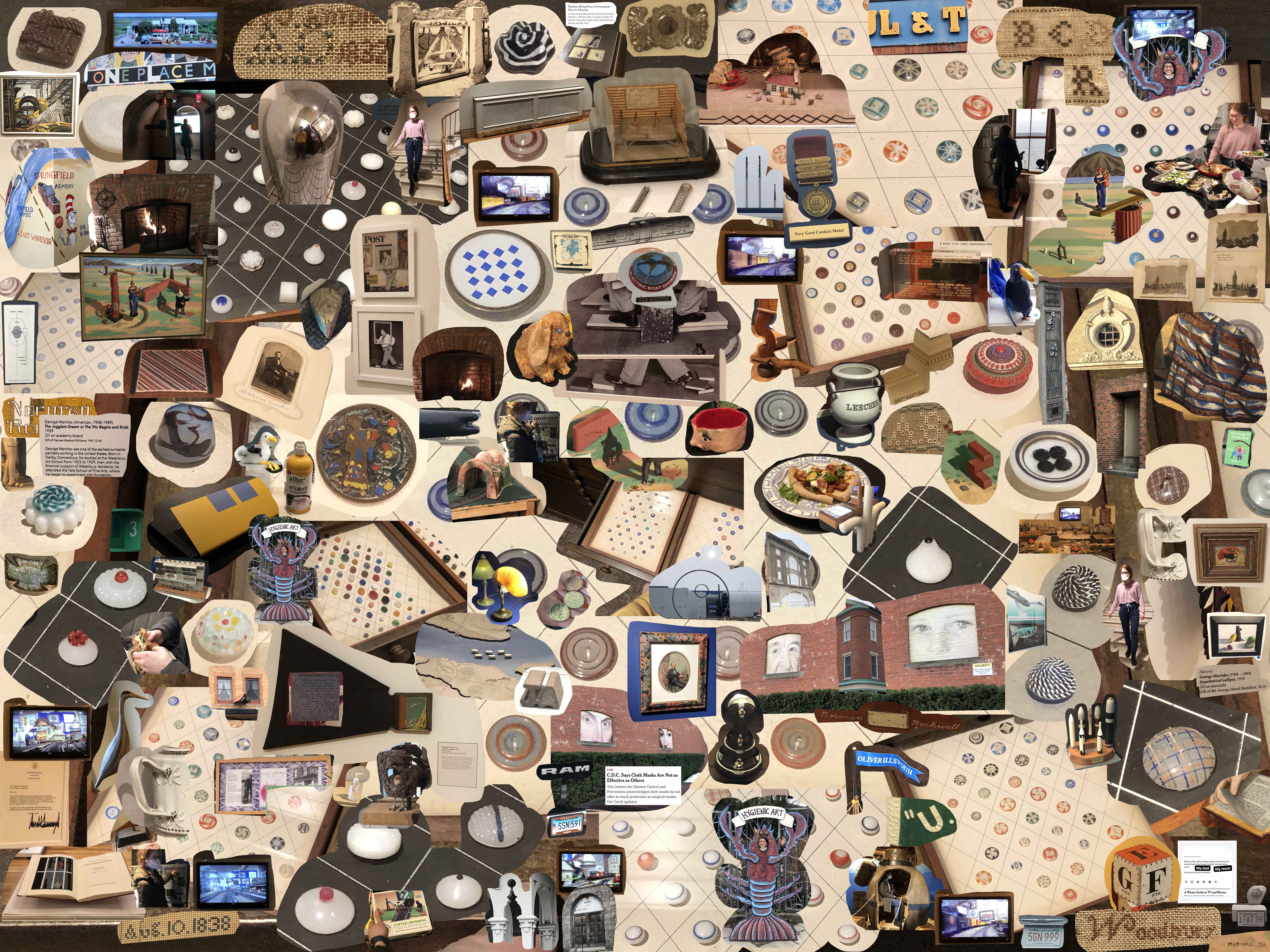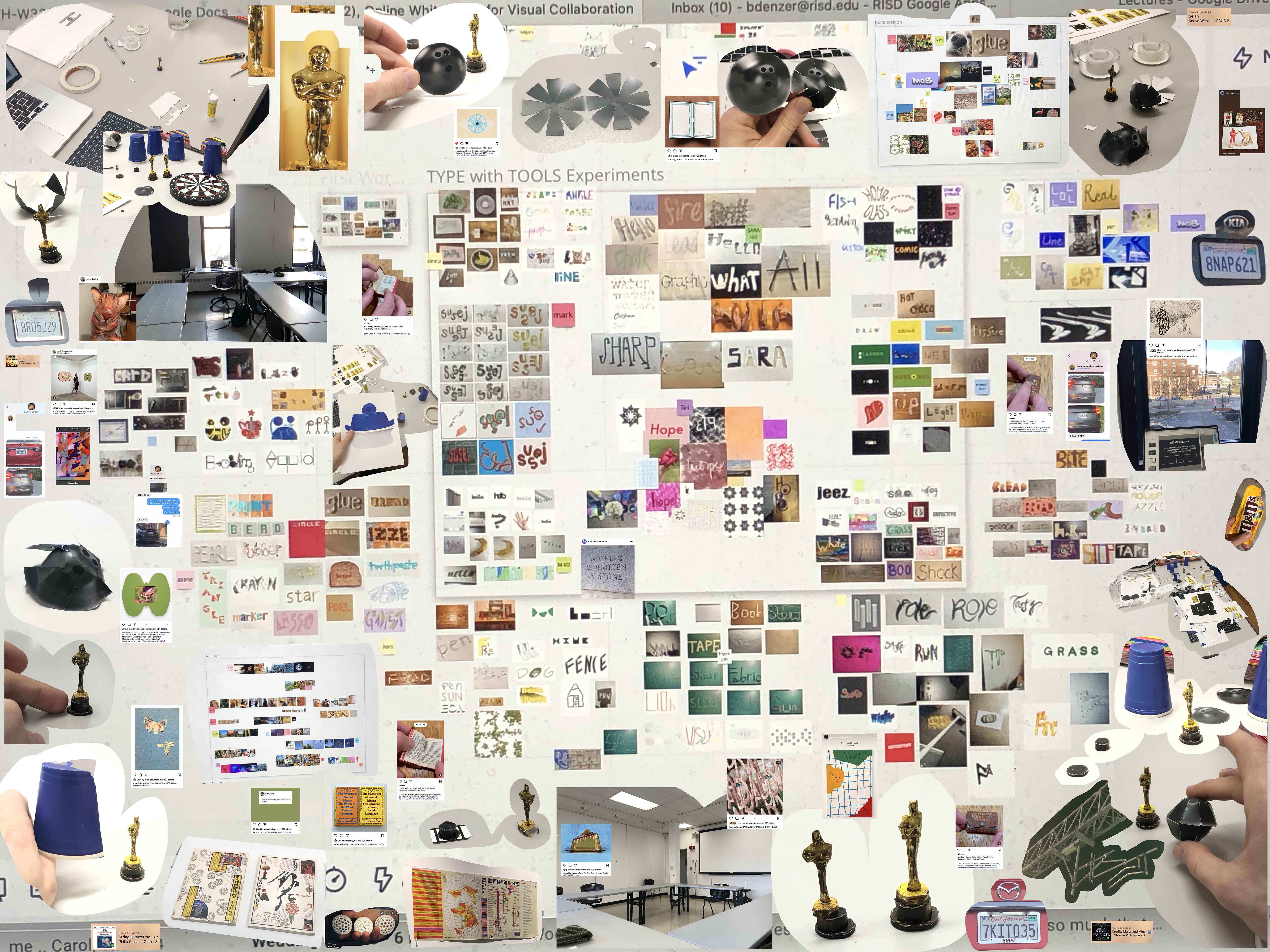Sunday, January 23, 2022
A friend texted me the other day asking me for my father's first name, saying he remembered a conversation from almost a decade ago when I'd mentioned that my father works at the New School. I expressed surprise that he had retained this information, and he said that it had served its job now, and he could let it go. I teased him about what he would do with the song lyrics he'd memorized in middle school. He told me he was holding onto those for the apocalypse.
— Excerpt from #sky #nofilter: Meditations on a year when I sometimes thought I was dying, Chloë Bass, 2017, in Daily Ritual at Center for Book Arts
Saturday, January 22, 2022
The whole point is I earned these for you and you keep them.
— Lily to Ken on sports trophies
Friday, January 21, 2022
It was unfortunate—perhaps tragic—that such great consequences could hang on such ordinary things as timing, fatigue, and personal engagements.
— John Milton Cooper, Jr., Woodrow Wilson
Thursday, January 20, 2022
This wasn't even a human anymore. I think they called it like biological waste or something like that, and it was now the property of them. It was no longer my property, and that was just... I couldn't even accept that. They don't want you taking your leg, and, and mailing it to the president or something. So, um... there's a liablilty there, and it's understandable.
— Guy with prosthetic leg who has the bones from his original leg preserved as a model, "How To Throw Out Your Batteries," How To With John Wilson
Wednesday, January 19, 2022
Because he knows his own human biases can creep into his decision making, Koon will often randomly select which of the solver’s tactics to employ in a given hand. He’ll glance down at the second hand on his watch, or at a poker chip to note the orientation of the casino logo as if it were a clock face, in order to generate a percentage between 1 and 100. The higher the percentage, the more aggressive the action he’ll take. “I’ll say: OK, well I just rolled 9 o’clock. So that’s 75 percent. That’s a pretty aggressive number.” In that instance, Koon might choose the largest of the solver’s approved bet sizes for his hand, whereas if the second hand had pointed to 3 o’clock, or 25 percent, he might have checked.
— Keith Romer, "How A.I. Conquered Poker," The New York Times Magazine
Tuesday, January 18, 2022
This, Hawking’s final theory, is that the law of physics evolved in a Darwinian fashion
— Bit of an email explaining a book*
Monday, January 17, 2022
That's sort of like trying to nail Jell-O to the wall.
— Bill Clinton on China trying to crack down on the internet, via H.R. McMaster, "Joe Rogan Experience #1763 - General H.R.McMaster"
Sunday, January 16, 2022
Not all little girls grow up to be queen Victoria.
— K*
Saturday, January 15, 2022
So many linguist in one (our !) family ! ????
— Sid responding to K's text "Horchata" and L's text "porchata"*
Friday, January 14, 2022
C.D.C Says Cloth Masks Are Not as Effective as Others
— New York TImes headline
Thursday, January 13, 2022
David Foster Wallace, I really like the thing he says about this, which is, "the key to life is to be unborable," and I do really like you saying that it's a skill.
— Lex Fridman, "Donald Knuth: Programming, Algorithms, Hard Problems & the Game of Life | Lex Fridman Podcast #219"
Wednesday, January 12, 2022
Better angle
— Steph sending me photos of license plates
Tuesday, January 11, 2022
To the former owner of this manuscript who craftily sewed up the holes in the vellum: thank you.
[Cistercian missal, 12th/13th century. Case MS7]
— @newberrylibrary
Monday, January 10, 2022
Christopher Elbow
— Lily reading chocolate box
Sunday, January 9, 2022
I see what they did there.
— Lily skeptical of "Monet, Rodin, and Boston" Boston MFA exhibit title
Saturday, January 8, 2022
He correctly credited the spirit of the times for much of what he had been able to do.
— John Milton Cooper, Jr., Woodrow Wilson
Friday, January 7, 2022
Are you Ben?
— Pavement employee when I made my order in person
Thursday, January 6, 2022
And no matter who wins the history wars of the future, the horrific attack on the Capitol will likely bore schoolkids one day, quizzed on Bunker Hill, the Compromise of 1850, the Battle of the Bulge and Jan. 6, whatever that was. Our trauma will be their homework.
— Jon Grinspan and Peter Manseau, "It’s 2086. This Is What American History Could Look Like," The New York Times
Wednesday, January 5, 2022
The fact that we conclude that the universe has the laws it has is a consequence of the fact that we have consciousness the way we have consciousness.
— Stephen Wolfram, "Stephen Wolfram: Complexity and the Fabric of Reality | Lex Fridman Podcast #234"
Tuesday, January 4, 2022
For example, what they're doing with video games. They control what type of video games and how many hours a day kids can be on video games, operating in that way because they believe that's good for the society, and that's very controlling. In the United States, I think probably most parents would say, leave it to me and it's a matter between me and my kids. The same thing has to do with data. In other words, in the United States, who controls the data? Does the company control the data? Do you individually control the data? And so the inclincation would be to figure that out, but nobody would say that the government is going to control the data, becuase of our inclination of really anti-government control. In China it would be that the government will control the data because that's going to be best for the society and it depends who you trust, but that's, so that difference in philosophy is very much at the heart of that.
— Ray Dalio, "Ray Dalio: Money, Power, and the Collapse of Empires | Lex Fridman Podcast #251"



















